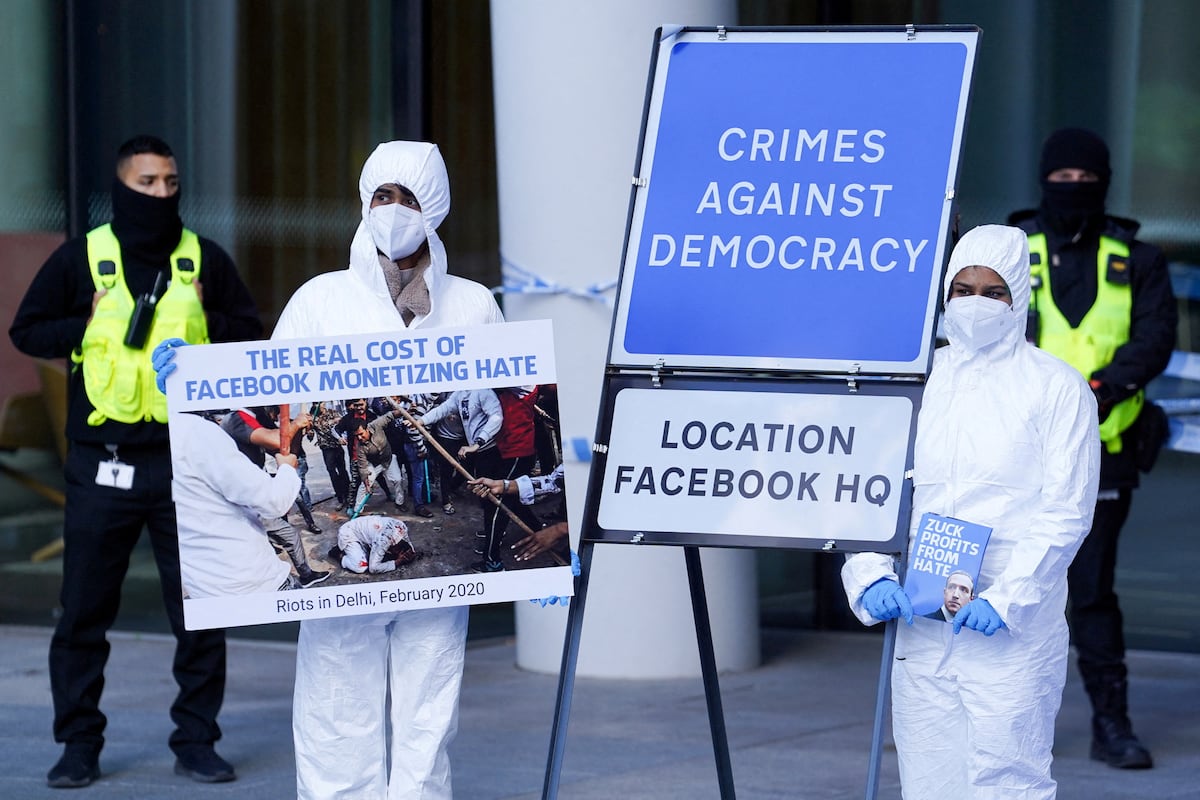New investigation into a large American technology company in Brussels. The European Commission has opened a file against Meta, the parent company of Facebook and Instagram, for “alleged violations of policies related to misleading advertising and political content in its services,” as explained by the EU Executive in a statement issued this week. Tuesday at noon. The investigations launched are covered by the digital services regulation that imposes additional control obligations on large Internet operators and platforms over the content they host.
For several months now, the Union authorities have been warning the large digital platforms to increase their vigilance against disinformation and Russian propaganda ahead of the European elections. “They are an important test in which technology companies should not fail,” warned the vice president of the Commission, Vera Jourova, responsible for the Securities and Transparency portfolio, “they will need to take their responsibility seriously, in particular the digital services regulation, “which requires them to mitigate the risks that the elections may pose.” This warning came last September, a few months before the regulation that imposes greater demands on these digital companies than on other smaller actors for their prominence on the Internet came into full force.
The Brussels investigations point in several directions. “The Commission suspects that Meta does not comply with the obligations of the regulation related to the fight against the spread of misleading advertisements, disinformation campaigns and coordinated inauthentic behavior in the EU. The proliferation of such content can pose a risk to civic discourse, electoral processes and fundamental rights, as well as to consumer protection,” the Executive first points out. As the European Commissioner for the Internal Market, Thierry Breton, explains in a message published in Vladimir Putin, and “scams.”
Today we open cases against #Meta for suspected breach of #DSA obligations to protect integrity of elections:
▪️Inadequate ad moderation exploited for foreign interference & scams
▪️Inadequate data access to monitor elections
▪️Non-compliant tool for flagging illegal content pic.twitter.com/ZJHWNDm2MD
— Thierry Breton (@ThierryBreton) April 30, 2024
Brussels’ accusations against the company run by Mark Zuckerberg in the political field do not stop here because it “suspects that Meta’s actions linked to the ‘political content approach’, which degrades political content in the Instagram and Facebook recommendation systems […] does not comply with the obligations” of the European standard. “The investigation will focus on the compatibility of this policy with the obligations of transparency and reparation to users, as well as with the requirements to evaluate and mitigate risks to civic discourse and electoral processes,” he warns.
One of the things that has outraged the Commission is that Meta is going to eliminate, as explained in its statement, a tool that allows third parties (journalists or researchers) to monitor the elections in real time “without having a substitute.” . That the American technology company intends to take this step when the European elections are approaching is something that irritates Brussels because “during election times, access to this type of tools should be expanded.” “Therefore,” community technicians suspect, “Meta has not diligently evaluated and adequately mitigated the risks related to the effects of Facebook and Instagram on civic discourse and electoral processes and other systemic risks.”
Join EL PAÍS to follow all the news and read without limits.
Subscribe
“Given the reach of Meta platforms in the EU (with more than 250 million monthly active users), and in the wake of the European elections taking place from June 6 to 9, 2024 and a series of other elections that will take place held in several Member States, such a depreciation could be detrimental to civic discourse and electoral processes in relation to the capabilities of monitoring misinformation and misinformation, identifying interference and voter suppression, and overall transparency in time provided to fact-checkers, journalists and other relevant electoral stakeholders,” details the Commission, which ends its accusation by adding the suspicion that the mechanism for reporting illegal content also does not comply with the requirements of the community regulation.
From now on, the investigation can continue for an indefinite period of time, since the digital services regulation does not establish a minimum or maximum period. During this period, EU technicians may ask the company to provide more information or conduct interviews to deepen their analysis until they have a definitive conclusion. If the infringement is finally proven, the fine can reach up to 6% of the company’s global turnover. Taking Meta’s turnover in 2023, 134,902 million dollars (about 124,000 million euros), this could reach just over 8,000 million dollars (about 7,400 million euros).
Before reaching this point, provisional control measures can also be imposed on the companies under investigation if the investigation considers that the violations may cause “serious harm” to users. These measures may be more control over keywords and hashtags or order an end to the alleged violations.
